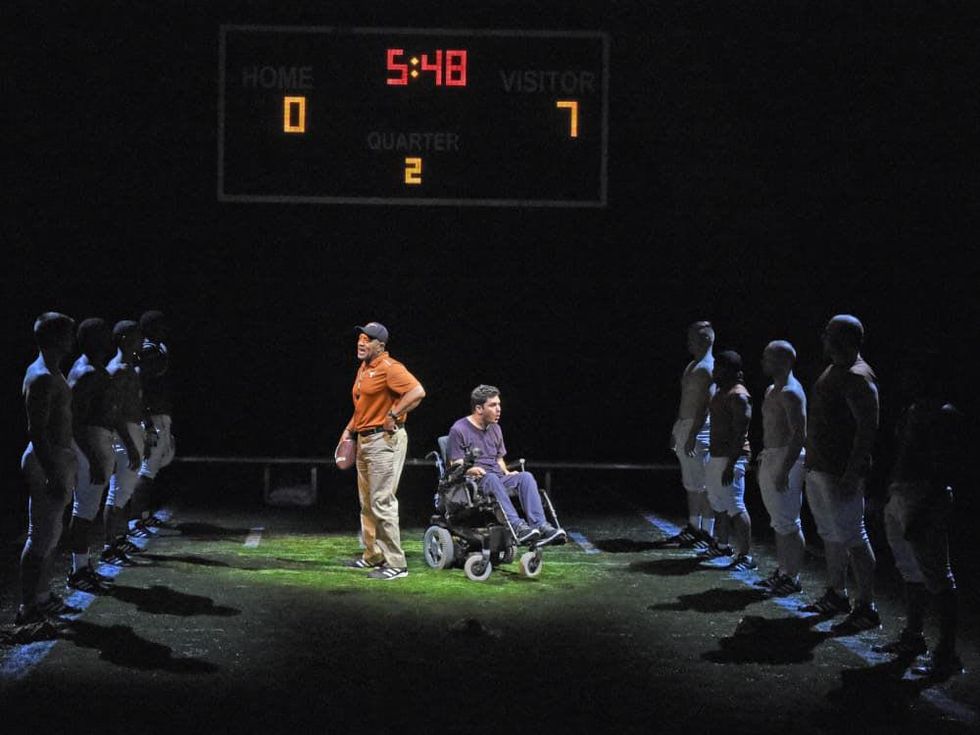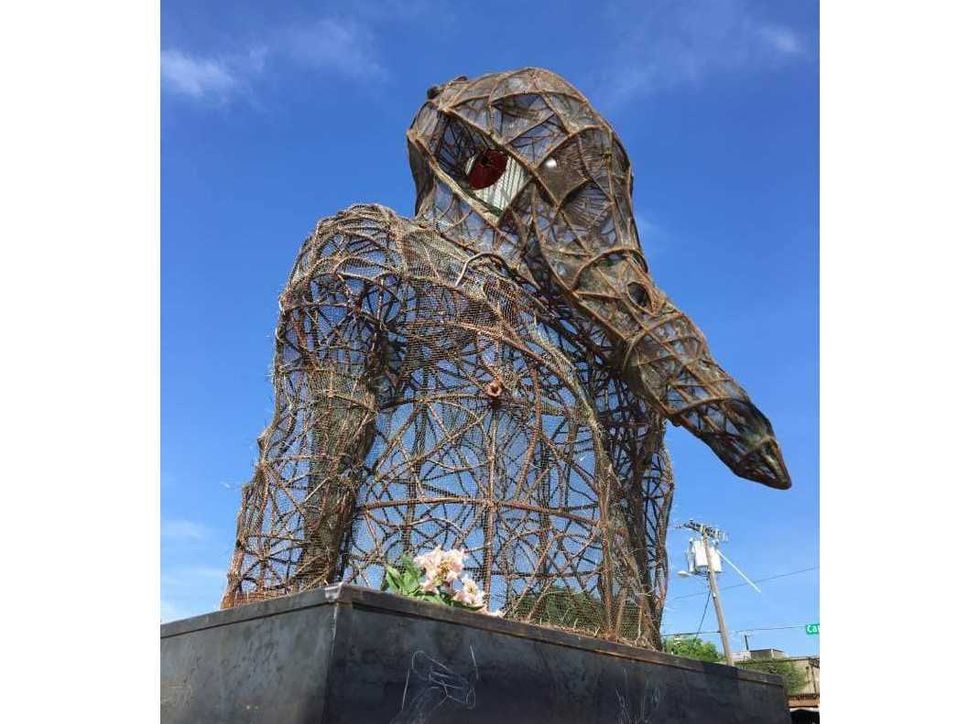Football Drama
Dallas Theater Center's Colossal comes up short of the goal line
The different nature of Dallas Theater Center’s latest production, Colossal (running through May 3), starts the moment you step into the Wyly Theatre. The main space, Potter Rose Performance Hall, has proven to be infinitely flexible since the Wyly opened in 2009, but nothing that the company has done before prepares you for what they’ve done for this.
The theater has essentially been flipped, with a portion of a football field laid down where the seats normally reside, and stadium grandstands erected where you’d normally find the stage. In addition, curtains that are normally down are wide open at the beginning of the play, allowing the audience to take in a view of the Dallas Arts District you rarely get to see.
If you haven’t been to the Wyly in a while — or even if you have — it will take a minute or two to orient yourself to the new reality.
If the story ultimately underwhelms, it’s buoyed by the choreography by Joshua L. Peugh.
As a prologue, a University of Texas football team goes through a series of warm-ups, complete with runs and passes that sometimes invade on the audience filing into the stands. It’s an immersive experience that immediately prepares you for the play that follows, which centers on Mike (Zack Weinstein), a former football player who was paralyzed during a game.
The bulk of the narrative has Mike thinking back on his past and conversing with his younger self (Alex Stoll), trying to understand how he got to where he is now. Two other men play important roles in his current life: his father, Damon (Joel Ferrell), leader of a modern dance company who envisioned Mike following in his footsteps, and Jerry (Steven Michael Walters), Mike’s physical therapist, who’s trying to get Mike to see beyond his current circumstances.
Mike is a tortured soul for a variety of reasons, but one of the biggest is one that can’t be revealed without giving too much away. Suffice it to say that, in addition to the threat of catastrophic injury, Colossal also tackles another controversial issue football is facing these days, a bold choice that may have been one bridge too far for the plot to travel.
In fact, the biggest problem Colossal has is that it just doesn’t give its characters enough time to properly deal with everything the story introduces. The one-act play adheres to a rigid structure of four 15-minute quarters (with a little extra thrown in), a conceit that sounds clever in theory but feels unnecessarily restrictive in practice.
Mike’s struggles all have to deal with relationships, and none of them is served fully with the relatively short length of the play. The one that comes through the most is the one he has with his younger self, as the two versions alternately praise or berate the other for the choices he makes. It’s a process to which almost anyone can relate and something that Weinstein and Stoll sell very well.
Mike’s fraught relationship with his father and his decision to give up dance to play football — or, as the play refers to it, “a reverse Billy Elliott” — is one that could encompass its own complete story. The same could be said for Mike’s dealings with his co-captain Marcus (Khris Davis) and the rest of his team. But because each of them is merely a subplot, neither comes close to having the impact it could.
If the story ultimately underwhelms, it’s buoyed by the choreography by Joshua L. Peugh and the acting of several individuals. Combining modern dance and football plays, Peugh, with the help of football consultant Noel Scarlett, pushes the actors in multiple directions, and the action is believable throughout.
Weinstein, who’s actually wheelchair-bound, brings depth to the role of Mike, and Stoll complements him well, bringing extra meaning to various moments. The rest of the team, which includes a couple of actual players, all bring honesty to the text that wouldn’t exist otherwise.
Colossal is a visually impressive undertaking by DTC, transforming the Wyly strikingly and offering visceral choreography throughout. But the story fails to live up to the visuals, leaving the production in the middle of the pack.




 Sculpture by Albert Scherbarth which appeared at the
Sculpture by Albert Scherbarth which appeared at the